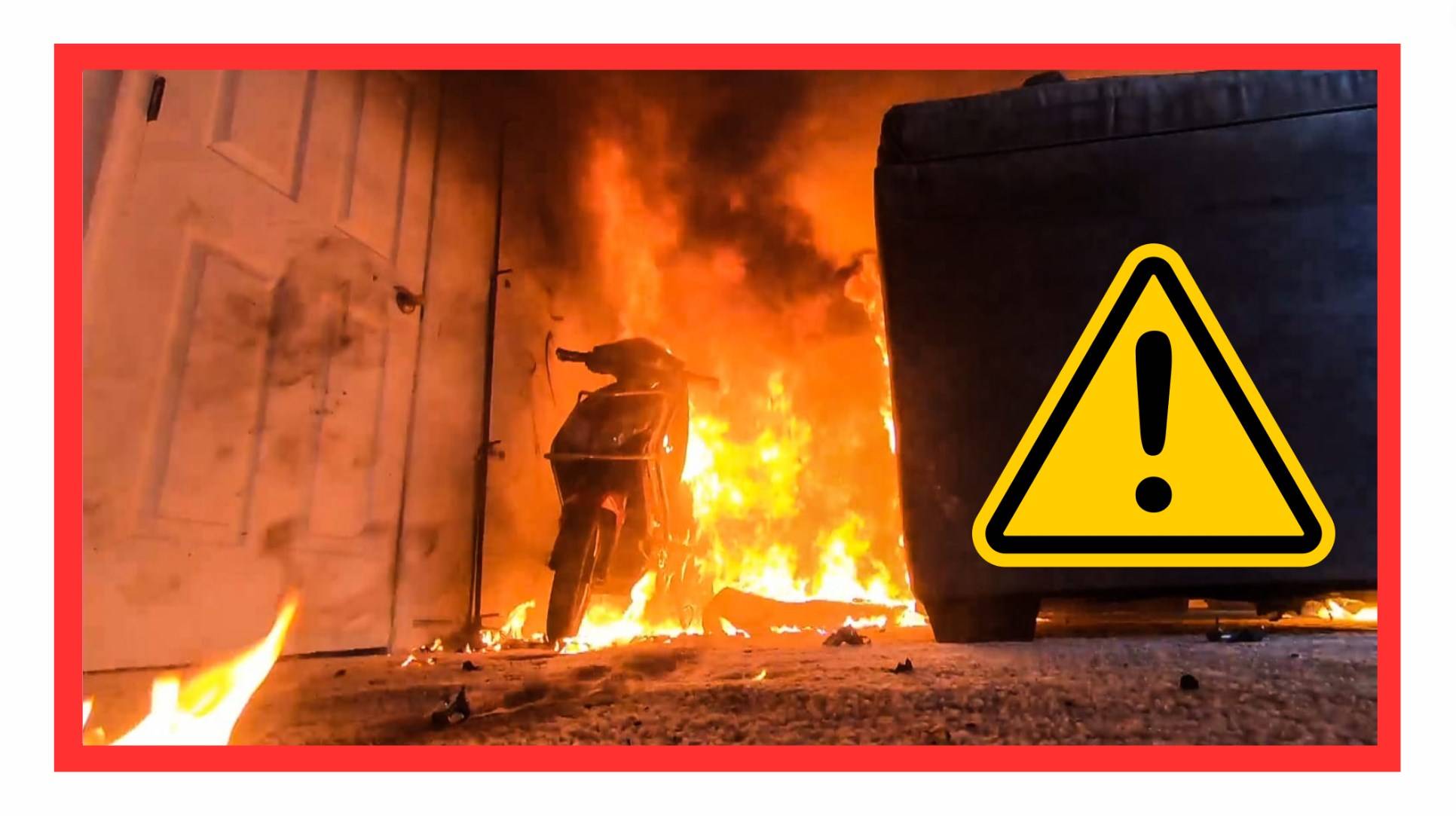Lithium-ion batteries, commonly found in consumer electronics and electric vehicles, pose fire risks if not handled properly. Understanding the causes and prevention strategies is crucial for protecting your home from potential hazards associated with these energy-dense power sources.
What are the common causes of lithium-ion battery fires?
Lithium-ion battery fires can occur due to several factors, including overcharging, manufacturing defects, physical damage, and exposure to extreme temperatures. When a battery is overcharged or damaged, it can lead to a condition known as thermal runaway, where the battery overheats and potentially ignites.Chart: Common Causes of Lithium-Ion Battery Fires
| Cause | Description |
|---|---|
| Overcharging | Using incorrect chargers or leaving devices plugged in |
| Physical Damage | Dropping or puncturing the battery |
| Manufacturing Defects | Faulty components leading to short circuits |
| Extreme Temperatures | Exposure to heat or cold affecting battery integrity |
How can you prevent lithium-ion battery fires at home?
Preventing lithium-ion battery fires involves several best practices:
- Always use the manufacturer’s recommended charger.
- Avoid charging devices overnight or unattended.
- Store batteries in cool, dry places away from direct sunlight.
- Regularly inspect batteries for signs of damage, such as swelling or leaking.
Chart: Prevention Tips for Lithium-Ion Battery Fires
| Prevention Tip | Description |
|---|---|
| Use Approved Chargers | Only use chargers that meet safety standards |
| Monitor Charging Devices | Do not leave devices charging unattended |
| Inspect Regularly | Check for physical damage or wear |
| Store Properly | Keep batteries in cool, dry environments |
What should you do if a lithium-ion battery catches fire?
If a lithium-ion battery catches fire:
- Evacuate the area immediately.
- Call emergency services (e.g., 911).
- If safe to do so, use a Class D fire extinguisher specifically designed for metal fires.
- Do not attempt to extinguish the fire with water, as this can worsen the situation.
Are there specific safety standards for lithium-ion batteries?
Yes, there are several safety standards governing the manufacture and use of lithium-ion batteries. These include regulations set by organizations such as Underwriters Laboratories (UL) and the International Electrotechnical Commission (IEC), which ensure that batteries meet strict safety requirements to minimize risks.
How does thermal runaway occur in lithium-ion batteries?
Thermal runaway occurs when a battery cell reaches a temperature that initiates a self-sustaining reaction within the cell. This can be triggered by overcharging, internal short circuits, or external heat sources. The process leads to rapid temperature increases, gas release, and potential ignition.Chart: Thermal Runaway Process
| Stage | Description |
|---|---|
| Initial Heat Generation | Caused by overcharging or internal faults |
| Cell Breakdown | Chemical reactions lead to increased pressure |
| Gas Release | Flammable gases escape from the cell |
| Ignition | Resulting fire due to high temperatures |
What safety measures can be taken to mitigate risks?
To mitigate risks associated with lithium-ion batteries:
- Implement proper charging protocols.
- Use protective cases for devices.
- Avoid exposing batteries to extreme conditions.
- Install smoke detectors near areas where batteries are charged or stored.
How should you store and dispose of lithium-ion batteries?
Store lithium-ion batteries in a cool, dry place away from flammable materials. When disposing of them, take them to designated recycling centers or follow local regulations regarding hazardous waste disposal. Never throw them in regular trash as they can pose environmental hazards.
Buy Wholesale Battery Tips
When considering wholesale purchases of lithium-ion batteries or OEM orders, partnering with a reputable manufacturer like Redway Battery is essential. Their extensive experience ensures high-quality products that comply with international standards. The typical process includes:
- Submitting an inquiry detailing your requirements.
- Collaborating with engineers to finalize specifications.
- Approving samples before mass production.
- Receiving timely shipments upon order confirmation.
Choosing a trusted manufacturer guarantees reliable products that enhance your business offerings.
Industrial News
Recent reports indicate an increase in incidents involving lithium-ion battery fires across various sectors, prompting calls for stricter regulations and improved safety standards. Manufacturers are being urged to enhance quality control measures during production and ensure that consumers are educated about safe usage practices.
Redway Expert Views
With the rise in popularity of devices powered by lithium-ion batteries, understanding their risks is more important than ever,” states an expert from Redway Power. “By following proper handling and storage guidelines, consumers can significantly reduce the likelihood of dangerous incidents.”
FAQ Section
- What causes thermal runaway in lithium-ion batteries?
Thermal runaway is caused by overheating due to overcharging, internal short circuits, or exposure to high temperatures. - How can I tell if my battery is damaged?
Look for signs such as swelling, leaking fluids, or unusual heat during charging. - What should I do if my device starts smoking?
Immediately unplug it if safe to do so and evacuate the area; call emergency services. - Are there specific chargers I should use for my devices?
Always use chargers recommended by the device manufacturer to avoid overcharging and damage. - How should I dispose of old lithium-ion batteries?
Take them to designated recycling centers or follow local hazardous waste disposal guidelines; never throw them in regular trash.



